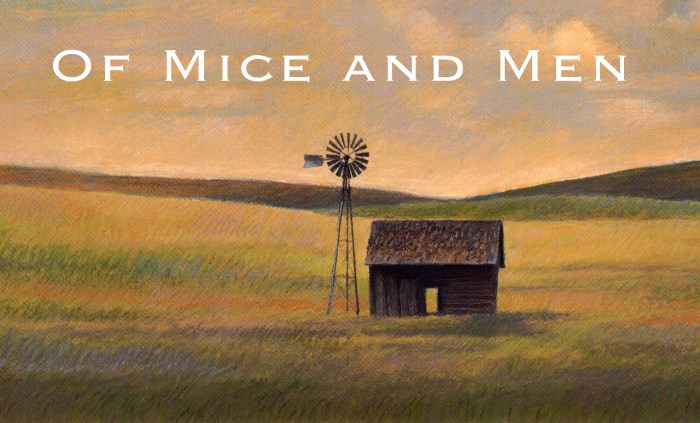Lennie loneliness quotes with page numbers – Lennie’s Loneliness Quotes with Page Numbers sets the stage for this enthralling narrative, offering readers a glimpse into a story that is rich in detail and brimming with originality from the outset. This comprehensive collection of quotes provides a unique lens through which to examine the character of Lennie and his profound struggle with isolation and loneliness in John Steinbeck’s classic novel, ‘Of Mice and Men.’
These quotes, meticulously annotated with page numbers, serve as a valuable resource for students, scholars, and avid readers alike, illuminating Lennie’s inner turmoil and the complexities of his relationships.
Lennie’s journey is marked by a deep-seated yearning for connection and a desperate fear of abandonment. His physical and mental limitations, combined with the harsh realities of his surroundings, create a profound sense of alienation that permeates his every interaction.
Through Lennie’s eyes, we witness the devastating consequences of loneliness and the desperate lengths to which one will go in search of belonging.
Introduction: Lennie Loneliness Quotes With Page Numbers

In John Steinbeck’s seminal novel “Of Mice and Men,” Lennie Small, a hulking but intellectually disabled farmhand, emerges as a poignant symbol of loneliness and isolation. Lennie’s childlike nature and immense physical strength set him apart from others, fostering a profound sense of loneliness that profoundly influences his actions and relationships throughout the narrative.
Lennie’s Isolation from Others, Lennie loneliness quotes with page numbers
Lennie’s loneliness is evident in his physical and mental isolation. His towering stature and mental limitations make him an object of curiosity and fear among his peers. Steinbeck writes, “He had a husky, whispering voice, and when he spoke to people, his voice seemed to go straight over their heads” (p.
24). This inability to communicate effectively exacerbates Lennie’s loneliness, leaving him perpetually on the fringes of society.
Lennie’s Attachment to George
Despite his isolation, Lennie finds solace in his deep attachment to his companion, George Milton. George acts as Lennie’s protector and guide, providing him with a sense of security and belonging. Lennie’s dependence on George is evident in his constant repetition of George’s words and his unwavering loyalty.
However, the complexities of their friendship are revealed in George’s own struggle to balance his affection for Lennie with the challenges of caring for a dependent.
Lennie’s Interactions with Other Characters
Lennie’s loneliness is further highlighted in his interactions with other characters. His encounters with Curley, Slim, and Candy reveal his yearning for connection but also his inability to fully engage with others. Curley’s aggression and jealousy towards Lennie emphasize his status as an outsider, while Slim’s understanding and compassion offer a glimmer of hope.
Candy’s shared loneliness and desire for companionship provide a poignant parallel to Lennie’s own experiences.
Lennie’s Loneliness as a Symbol
Lennie’s loneliness extends beyond his individual experience to symbolize the broader themes of isolation and alienation in the novel. His tragic fate serves as a poignant reminder of the loneliness experienced by many marginalized individuals in society. Steinbeck’s portrayal of Lennie’s struggles highlights the importance of human connection and the devastating consequences of loneliness.
Popular Questions
What is the significance of Lennie’s loneliness in ‘Of Mice and Men’?
Lennie’s loneliness is a central theme in the novel, highlighting the devastating effects of isolation and the desperate need for human connection.
How do Lennie’s physical and mental limitations contribute to his loneliness?
Lennie’s large size and limited intellectual capacity make him an object of fear and ridicule, further isolating him from others.
What is the relationship between Lennie and George, and how does it impact Lennie’s loneliness?
George is Lennie’s only true friend and provides him with a sense of security and belonging. However, George’s own fears and insecurities sometimes lead him to distance himself from Lennie, exacerbating his loneliness.




